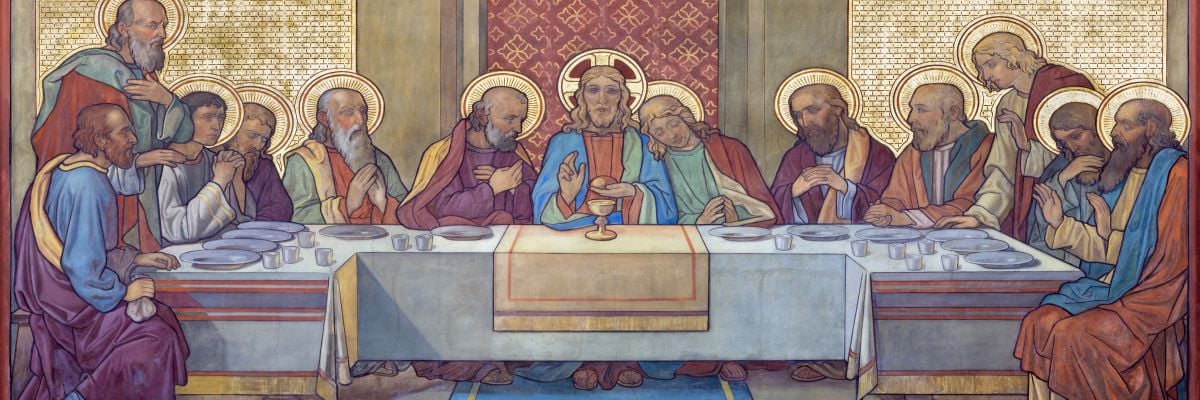
Question:
Answer:
You ask a good question, because the letter to the Hebrews does teach “Where there is forgiveness of these, there is no longer any offering for sin” (Heb. 10:18). However, the sacrifice of the Mass is not a new offering for sin but a participation anew in Christ’s one Sacrifice of Calvary that culminated in everlasting glory in the heavenly sanctuary.
Consider the larger context of Hebrews 10:11-18:
And every priest stands daily at his service, offering repeatedly the same sacrifices, which can never take away sins. But when Christ had offered for all time a single sacrifice for sins, he sat down at the right hand of God, then to wait until his enemies should be made a stool for his feet. For by a single offering he has perfected for all time those who are sanctified. And the Holy Spirit also bears witness to us; for after saying,
“This is the covenant that I will make with them
after those days, says the Lord:
I will put my laws on their hearts,
and write them on their minds,”then he adds,
“I will remember their sins and their misdeeds no more.”
Where there is forgiveness of these, there is no longer any offering for sin.
Here the author of Hebrews compares the sacrifices of Old Covenant priests, which had to be offered repeatedly, with the one sacrifice of Christ. Some of these Old sacrifices were offered daily (Heb. 10:11), and some less frequently, like the annual Passover and Yom Kippur/Day of Atonement sacrifices. The author of Hebrews makes the argument that Jesus fulfills the Day of Atonement sacrifices in Hebrews 9, especially verses 11-14.
Because Christ’s one sacrifice culminated in everlasting glory, he continues to offer it in the heavenly sanctuary on our behalf (Heb. 8:1-3). That’s why he holds his priesthood permanently (Heb. 7:23-25), even now interceding on our behalf (Heb. 9:23-24).
So Jesus is the high priest of heaven (CCC 662-64, 1137-39), and he always lives to make intercession for us. The Sacrifice of the Mass is our participation anew in Christ’s one continuing sacrifice, through which he always lives to make intercession for us (Heb. 7:23-25). This mean that the eucharistic sacrifice has continuing atoning power for the sins we commit daily (CCC 1366).
Jesus’ one sacrifice is made sacramentally present and offered anew at every Mass according to the order of Melchizedek, i.e., under the forms of bread and wine (Gen. 14:18-20, Heb. 5:7-10, Matt. 26:26-29, Luke 22:19-20; see CCC 1333, 1355, 1544). Consequently, the words of the Lord’s Prayer—“Thy kingdom come, thy will be done, on earth as it is in heaven”—are nowhere more profoundly fulfilled than in the Mass, because heaven and earth are united in a most perfect way that further fosters the redemption of mankind.
For more information on the intimate connection between the heavenly liturgy and the sacrifice of the Mass, see Pope Paul VI, Credo of the People of God, 24-26).



